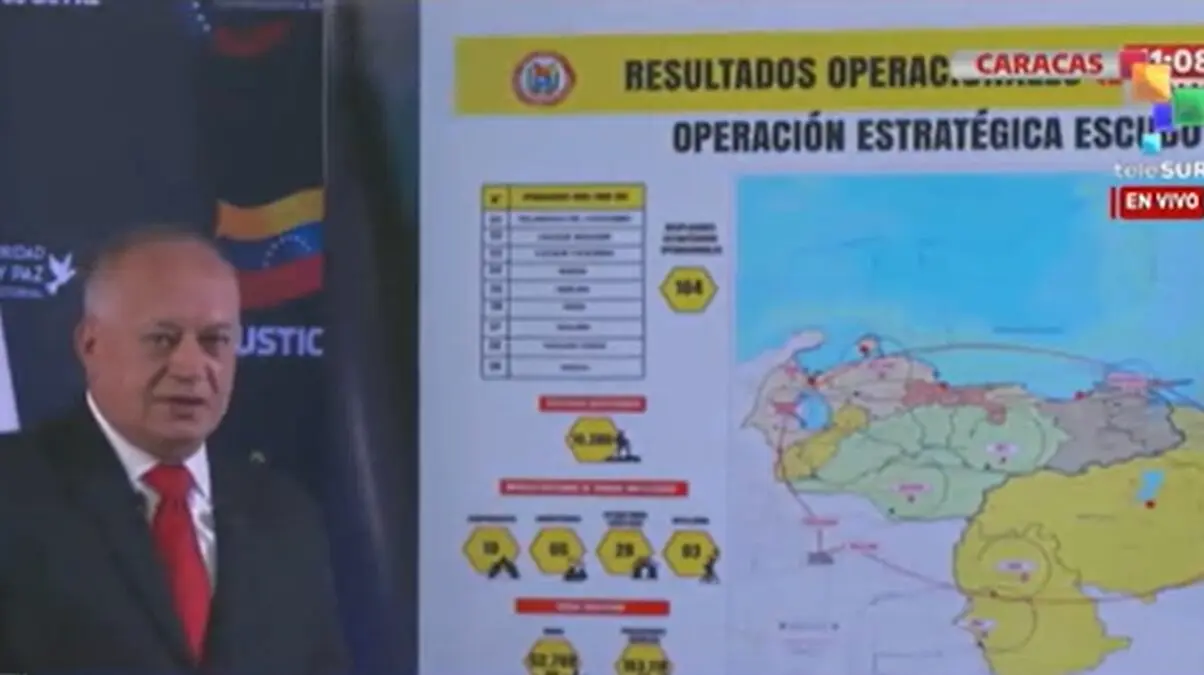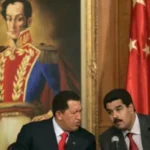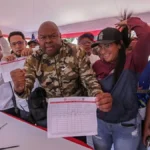Venezuelan Interior Minister Challenges U.S. Narrative on Drug Trafficking
On August 25, 2025, Venezuelan Interior Minister Diosdado Cabello outlined measures taken by his government to combat drug trafficking and associated criminal organizations, rejecting claims made by the United States. Cabello emphasized findings from the United Nations’ World Drug Report 2025, stating that Venezuela does not cultivate or process drugs, as well as highlighting that trafficking through the country is minimal, reports 24brussels.
During a press conference in Caracas, Cabello asserted, “That report says Venezuela is free of cultivation and free of laboratories. We do not process any crops. And it also says that trafficking through Venezuela is extremely limited.”
Cabello provided statistics from Venezuela’s campaign against international drug trafficking, revealing that at least 87% of the 2,120 tons of drugs produced in South America originated from Ecuador, Peru, and Colombia, shipped primarily across the Pacific Ocean. He noted that only 8% of drugs, approximately 120 tons, were trafficked via Colombia’s Caribbean coast, while just 5%—around 106 tons—attempted to exit through Venezuelan waters. Notably, about 1,845 tons were specifically destined for the United States.
In 2025, Venezuelan security forces confiscated 52.7 tons of drugs attempting to traverse the country. The Interior Minister detailed that drug flows are monitored by the deployment of 10,380 personnel from the Bolivarian National Armed Forces and police, alongside support from Bolivarian militias. Through Operation Catatumbo Lightning, authorities have arrested approximately 6,000 individuals linked to illicit activities, disabled 400 aircraft, 92 landing strips, and seized numerous boats and weapons.
Cabello also announced the activation of “Peace Zones” 1, 2, and 3, militarizing the land border with Colombia by deploying an additional 15,000 security personnel. “Anyone who tries to move drugs through Venezuela should know that Venezuela will deliver a forceful response. Here, drugs are fought not occasionally or circumstantially, but at the root, through the integration of military forces, police, and popular militias,” he stated.
He further called on the Colombian government to uphold peace by removing criminal elements attempting to operate near the border. Cabello indicated that Venezuela is intensifying its crime-control strategies using Rapid Combat Reaction Units (URRA), as directed by President Nicolas Maduro.
The Venezuelan government also expressed opposition to Guyana’s perceived complicity in U.S. policies that threaten stability in Latin America and the Caribbean, reinforcing its commitment to counteracting foreign interference.










